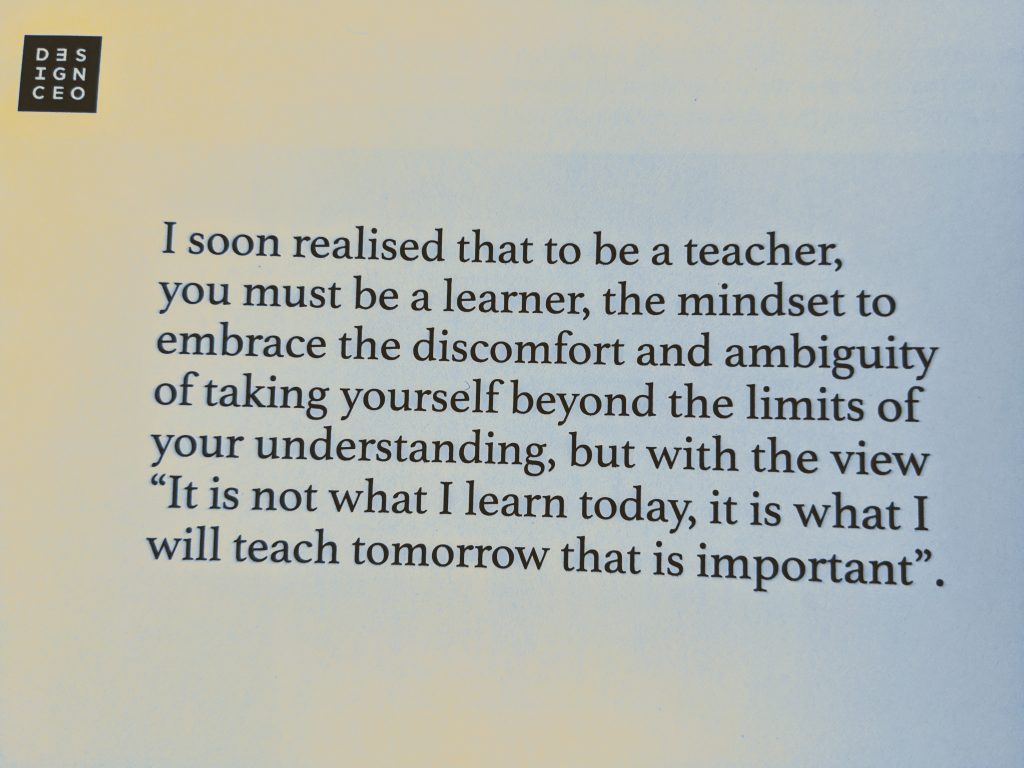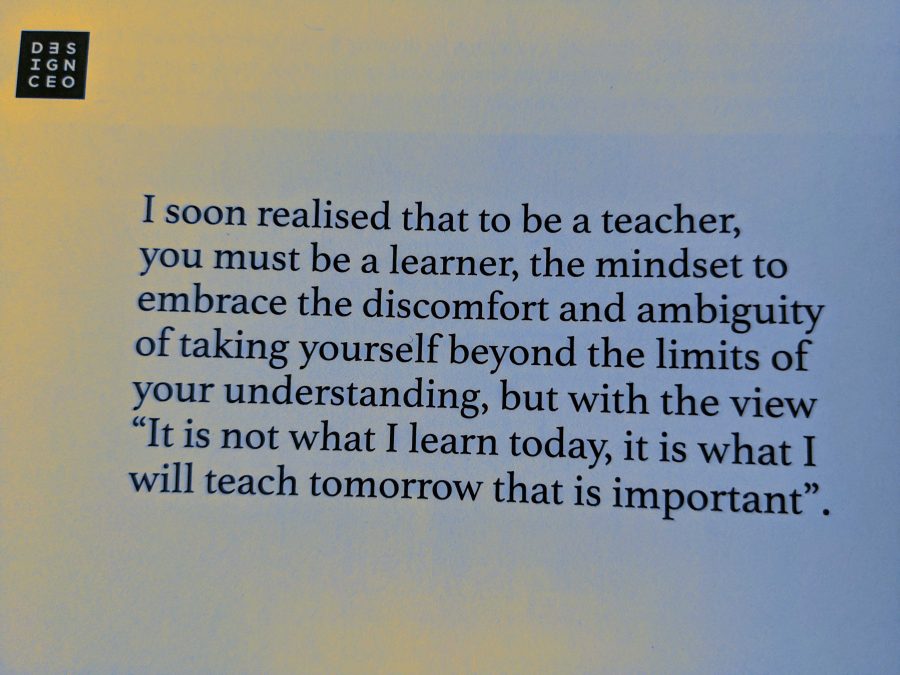Recently I was given Cameron Schwab’s book “What leaders can learn from football“, which was followed up by a webinar with Cameron to apply the book to the current COVID remote working situation. I’d like to share my key takeaways.
Boards are more distant than ever
There is an increasing gap between boards and the team. Boards are asking how we take advantage of this seismic change, how do we be more bold? Teams however are over the groundhog day of lockdowns, constant ambiguity and juggling their lives. How do leaders bridge that gap?
Firstly leaders must build a foundation of trust. This involves empathising with their teams. Listening. Starting every conversation with “how are you?”. Take 2 minutes to check in and connect. Recognise the struggle they are going through. Empathetic conversations don’t have to take a long time. You have to aspire to be a better human and it will resonate. Trust is the outcome of showing your authenticity and mettle through tough situations.
Name your 6-7 most meaningful relationships inside the company. That’s your measure of trust, buy in, clarity and connection. That’s your key to leadership success. You can’t maintain any more relationships than that.
Once trust is built, then as leaders our most important role is to reduce ambiguity for our teams. Leaders are makers of meaning – they create a story of “us”. They are makers of place – creating a sense of belonging. You belong to this team because of your attitude/character, your capabilities and whether you connect in personally.
The contradiction of a board is they have the least detail on the company, but are charged with making the really key decisions. What does winning look like? What do we need to be good at? Can we get an alignment between ambition and capability? If not, we have set expectations incorrectly.
Leaders overpromise to their board because of this, they overstate capability to match the board’s ambition. You need to be honest about what we are going to do – We can’t do everything, the most important thing is choosing what to do. Prioritising.
How will we know if we prioritised correctly? If there’s a gap between ambition and measurement. Do the board agree your measurable goals are ambitious enough?

Teaching and Learning
Your team cannot outperform your leadership. Leaders set the culture, which drives behaviours, which drive results. Your main responsibility as a leader is to create an atmosphere where your team can do their best work.
Transparency is the key behaviour, keeping your teams informed so they can solve problems and role modelling the standard of behaviour expected.
Again the building block of is trust. Carve your mistakes into the wall. In this way you use your own learnings to build trust into the team.
Leaders need to be connected in the future. Make sense of the world quickly and be decisive. Be a transparent learner and then great teacher. If you’re wrong it’s ok, bring those learnings into your team. Be able to adapt quickly. Be a great storyteller around that. Cross a bridge of vulnerability to teach your experience.
Authenticity from the top
Leadership has never been more important and expectations have never been higher. In business, we promote people to leadership before we teach them leadership. In sport, leadership is taught and expected from the start – every player needs to step up during key moments and lead when the ball is in their hand. An extraordinary number of people climb the leadership mountain and then find they don’t like the view. You have to get to the point where as a leader you can walk into a room and not have to fake it or you will burn out. People can smell fake leaders.
Work flexibility
By telling teams they can work flexibility, you’re actually putting the onus on them to go figure it out. The reality is that for some people remote work is an advantage, for others it’s a disadvantage. Not everyone is treated equally by this, but they should be treated fairly and with empathy.
The people who complain that culture is hard remotely, probably had a good culture by accident before. You need to be more deliberate. Put the challenge to high performing teammates, what can you do to help others? Leaders need to disperse responsibility to the team. Be surprised by the insights teams have into each other, then can leverage their perspectives and insights.

